View cart “Akshat / Rice” has been added to your cart.
Previous product
Back to products
Vastu pratima
₹250.00
Next product
Clove, Cardamom, Betelnut
₹95.00 – ₹210.00
Jau (Barley) grains
₹25.00
Description
- Barley grains for use in pooja and homa ceremonies.
- The sowing of barley during Navratri is the symbolic of the first fruit.
- It signifies growth, prosperity and abundance.
- On the first day of the Navratri, grains of barley are planted in the pooja room of the house.
Quantity
- 125 gms
Categories: Daily Pooja Ingrediants, Pooja Ingrediants
Related products
Navgraha Samidha starter pack
₹55.00
Description
- The nine planets in our horoscope control our karma, our desires and their outcomes.
- Each of these nine planets exerts an influence in our lives, which is called "dasa".
- The Navgrahas are worshipped in every homa and yagna.
- These wooden sticks are offered to the homa fire.
- There are 9 sticks each representing one of the Navagrahas.
Quantity
- Set of 1
Gomutra
₹150.00
Description
- Being highly recommended by the scriptures, it is considered holy and safe to use.
- The original scriptures of Ayurveda consider cow urine to be the elixir of life.
- Cow urine is an important part of many Indian rituals/daily pooja.
- Gomutra has the ability to attract divine consciousness which in turn creates an increase in the Sattva component and therefore facilitates spiritual healing.
- The Indian cow has the ability to attract the frequencies of all the deities in the universe.
Quantity
- 200 ml
Kala Urad / Black gram
₹55.00
Brass Kalash (Small)
₹350.00
Description
- This lovely Kalash can be utilized karwa chauth and any event like wedding , commitment ,diwali , raksha bandhan or in any ceremonies, puja Brass Kalash keeps up an exceptionally propitious job as it is a piece of each religious customs.
- This is made of Brass material which makes it durable.
- Kalash is an important accompaniment in pooja rituals, weddings and important festive occasions.
- The water in Kalash is also used during abhishekam.
- Made in heavy shining brass.
Specifications
- Material - Brass
- Pack of - 1
- Size - (W x H) 6 x 6.5 cm
- Weight - 66 g
Havan Samagri
₹140.00
Description
- The Havan Samagri is a sacred offering in the yagna and each item of the samagri is significant.
- The havan samagri is offered in the fire during yagnas and homas, after completion of every mantra chant.
- Havan Samagri (a mixture of various dried herbal , roots and leaves) is offered in the ablazed fire which disseminates in micro form, in the air, to purify the environment besides activating the air as disinfectant germicidal agent.
- It is anti-bacterial and is made from high grade raw materials. It is 100% natural Havan Samagri.
Contents
- Made from ayurvedic havan exotic herbs, Black til, Jo, 32 types of dhoop, Bhimseni kapoor, rose petals, sandalwood powder, lobaan, ghee, chandan
Quantity
- 100 gms
Brass Panchaarti (Small)
₹660.00
Description
- The importance of lighting a diya during worship can be traced back to Vedas.
- Light symbolizes knowledge and darkness, ignorance.
- The Lord is the “Knowledge Principle” (chaitanya) who is the source, the enlivener and the illuminator of all knowledge.
- Hence light is worshipped as the Lord Himself. Knowledge removes ignorance just as light removes darkness.
- Also knowledge is a lasting inner wealth by which all outer achievements can be accomplished.
- Hence we light the lamp to bow down to knowledge as the greatest of all forms of wealth.
- We therefore keep a lamp lit during all auspicious occasions as a witness to our thoughts and actions.
Specifications
- Material – Brass
- Pack of – 1
- Weight – 245 g
Kesar
₹190.00
Description
- Kesar have been derived from the Northern Indian region, Kashmir, where old saffron was produced.
- Saffron is the most expensive spice in the world.
- Saffron's aroma is unique and there is no substitute for it.
- It is offered to deity idols and afterwards distributed and smeared on the foreheads of devotees.
Quantity
- 0.025 gms
Akshat / Rice
₹100.00
Description
- Akshat basically consists of uncooked un-broken pieces of rice.
- Akshat is believed to be equal to offering clothes, jewelry, food, or any other offering.
- Akshat is usually thrown over the head of the devotees during Pooja and during functions like marriage and other auspicious events.
- Akshat / Rice Grains is one of the primary things without which the worship of the deity cannot be accomplished in a proper way.
- They are actually the symbols of prosperity and wealth.
Quantity
- 250 gms


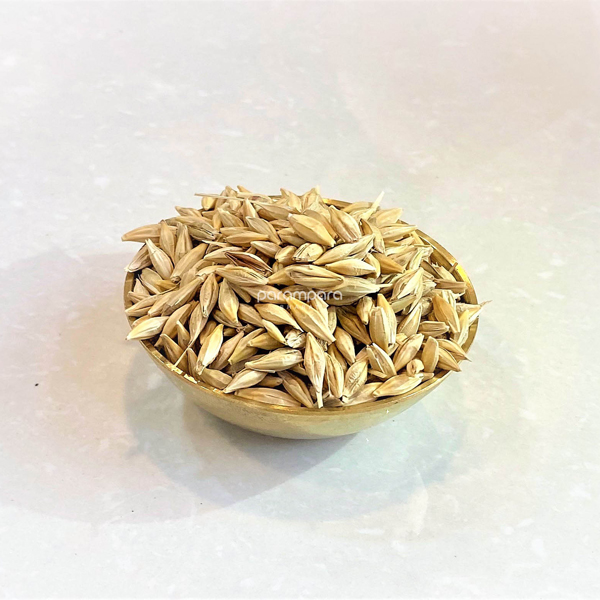
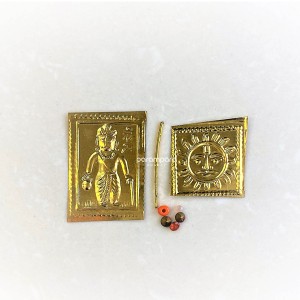
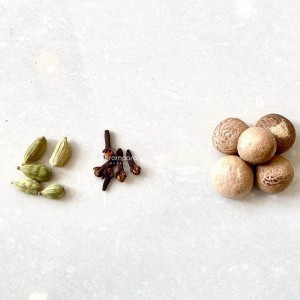
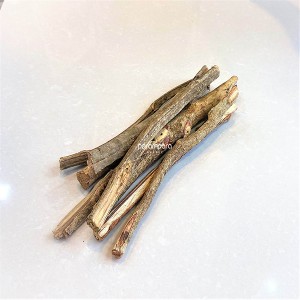
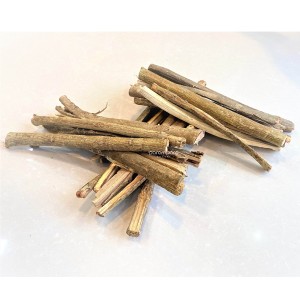
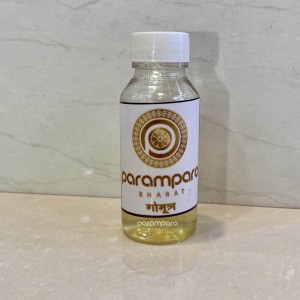

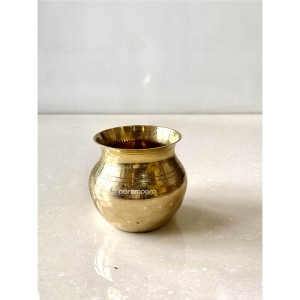


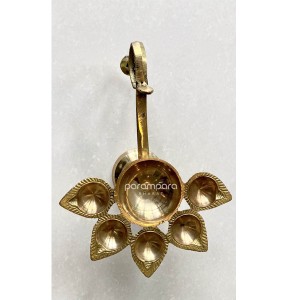
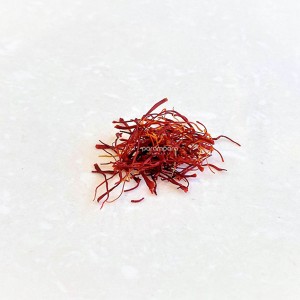
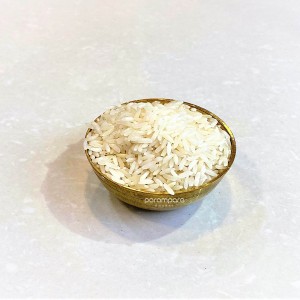


Reviews
There are no reviews yet.